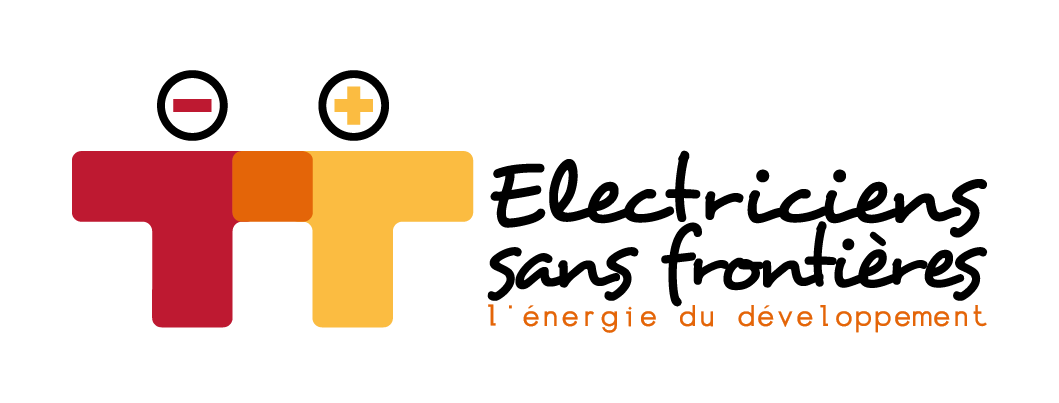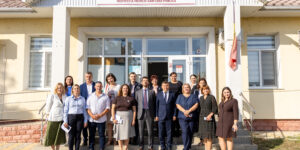During the 5th National Humanitarian Conference (Conférence nationale humanitaire CNH), held on December 17th, Electriciens sans frontières contributed to the declaration of climate commitment, alongside nine other major humanitarian players.
Ten climate NGOs mobilize at the 2020 CNH
Created in 2011, the National Humanitarian Conference is a forum for collaboration, reflection and discussion. It is organized jointly by the Crisis and Support Centre of the Ministry of Europe and Foreign Affairs and French international solidarity NGOs, united within Coordination Sud. Every two years it brings together international humanitarian actors, the State, parliamentarians, international organizations and private actors.
During its 2020 meeting, five major topics of current humanitarian concern were the subject of debate:
- protecting humanitarian workers;
- the impact of Covid-19 on international aid;
- the impact of sanctions regimes and anti-terrorism measures on humanitarian aid;
- strengthening collaboration between humanitarian, development and peace actors;
- climate change.
During the round table session devoted to this subject, ten NGOs (including Electriciens sans frontières) proposed a declaration of significant commitments to further strengthen their contribution to the fight against climate change.
"
The climate crisis increases the frequency and intensity of natural disasters, intensifies food insecurity and complicates humanitarian responses in conflict zones.Today, it is no longer possible to think of humanitarian action as a response to crises; a comprehensive approach, thought out over the long term with the populations most affected and based on prevention and preparation is mandatory.
"Strong commitments related to the climate emergency
By signing this declaration, initiated by the Humanitarian Environment Network (Réseau environnement humanitaire (REH)), we at Electriciens sans frontières commit ourselves to:
- measuring the environmental & carbon impacts of our actions;
- halving our emissions by 2030;
- modifying our actions appropriately;
- making ourselves accountable;
- raising the sector’s awareness.
These subjects are not new. We have been working for more than ten years on assessing the climate impact of our projects and, more generally, of our operations.
By participating in this new initiative, we are taking action to ensure that the fight against climate change is fully incorporated into the intervention strategies of humanitarian organizations.
Battling against climate change is at the heart of Electriciens sans frontières' activities
Ever since its creation Electriciens sans frontières has deployed numerous innovations contributing to the fight against climate change and the preservation of the environment:
- by promoting energy production that relies on local renewable resources, such as the sun or hydraulic energy; these constitute alternatives to fossil fuels and have a very limited impact on the environment. Renewable energies enable access to efficient energy at an affordable cost while reducing greenhouse gas emissions. In some countries, our interventions have made it possible to demonstrate the value of these technologies and to train the first players who wanted to embark on this path. In 2019, more than 95% of our development projects relied on the use of renewable energies;
- by ensuring that our facilities match local contexts, in particular by strengthening the resilience of populations exposed to high risks of meteorological disasters. During COP 25, which was held in December 2019 in Madrid, Electriciens sans frontières received the UN Prize for Climate Action for implementing a pilot programme to strengthen the resilience of health centres on the island of Dominica. A second phase is currently being rolled out, supported by funding from the Fondation de France.
- by giving priority to “working with” or even “having it done by” our local partners, principally to improve the ownership and sustainability of our projects, which leads to limiting our presence in the field as much as possible (and therefore minimising our travel). For example, through the project carried out with refugee populations in the camps of Cox’s Bazar in Bangladesh, we have proved that it is possible to combine a humanitarian response to the needs of populations in distress, as well as deploying climate and environmentally-friendly solutions. More recently, we have started implementing a programme to strengthen the capacities of health structures in Africa in the face of the Covid epidemic, and these actions are carried out completely remotely. Indeed, the commitment of our volunteer teams over the years has made it possible to forge solid links with reliable local players, who can now be mobilized to deploy our actions in the field.
The commitments made by Electriciens sans frontières on the occasion of the National Humanitarian Conference constitute a new step in our strategy of contributing to the fight against climate change and continue to demonstrate that the development of the most deprived populations on the planet is entirely compatible with the preservation of the climate and the environment.



